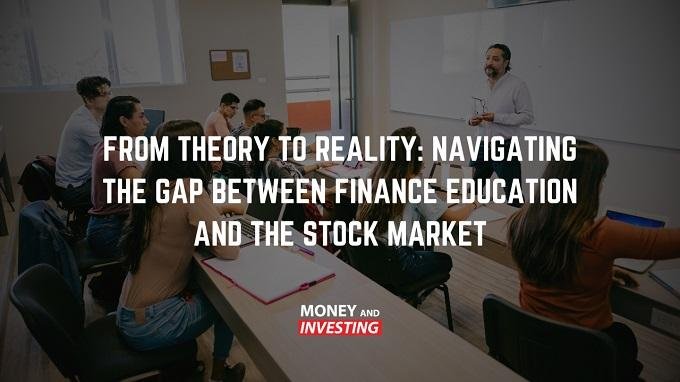Beyond the Textbook: Making Financial Theory Work in the Stock Market
In finance courses, students are introduced to models and theories designed to explain market behavior. For example, the “efficient market hypothesis” posits that stock prices reflect all available information. However, in practice, market efficiency is a nuanced and often debated concept. While markets may generally behave efficiently, they are also influenced by factors like insider knowledge, institutional actions, and human psychology—factors that academic models don't fully capture.
A common gap arises from the simplification in financial theories. Take “ceteris paribus”—the assumption that all other variables remain constant. In reality, nothing is static; markets, consumer behaviors, and economic conditions constantly shift. Financial models relying too heavily on this idea risk overlooking key factors in decision-making.
https://sites.google.com/view/stock-market-success/home
#StockMarket
#MakingFinancial
#andrewbaxter
In finance courses, students are introduced to models and theories designed to explain market behavior. For example, the “efficient market hypothesis” posits that stock prices reflect all available information. However, in practice, market efficiency is a nuanced and often debated concept. While markets may generally behave efficiently, they are also influenced by factors like insider knowledge, institutional actions, and human psychology—factors that academic models don't fully capture.
A common gap arises from the simplification in financial theories. Take “ceteris paribus”—the assumption that all other variables remain constant. In reality, nothing is static; markets, consumer behaviors, and economic conditions constantly shift. Financial models relying too heavily on this idea risk overlooking key factors in decision-making.
https://sites.google.com/view/stock-market-success/home
#StockMarket
#MakingFinancial
#andrewbaxter
Beyond the Textbook: Making Financial Theory Work in the Stock Market
In finance courses, students are introduced to models and theories designed to explain market behavior. For example, the “efficient market hypothesis” posits that stock prices reflect all available information. However, in practice, market efficiency is a nuanced and often debated concept. While markets may generally behave efficiently, they are also influenced by factors like insider knowledge, institutional actions, and human psychology—factors that academic models don't fully capture.
A common gap arises from the simplification in financial theories. Take “ceteris paribus”—the assumption that all other variables remain constant. In reality, nothing is static; markets, consumer behaviors, and economic conditions constantly shift. Financial models relying too heavily on this idea risk overlooking key factors in decision-making.
https://sites.google.com/view/stock-market-success/home
#StockMarket
#MakingFinancial
#andrewbaxter


